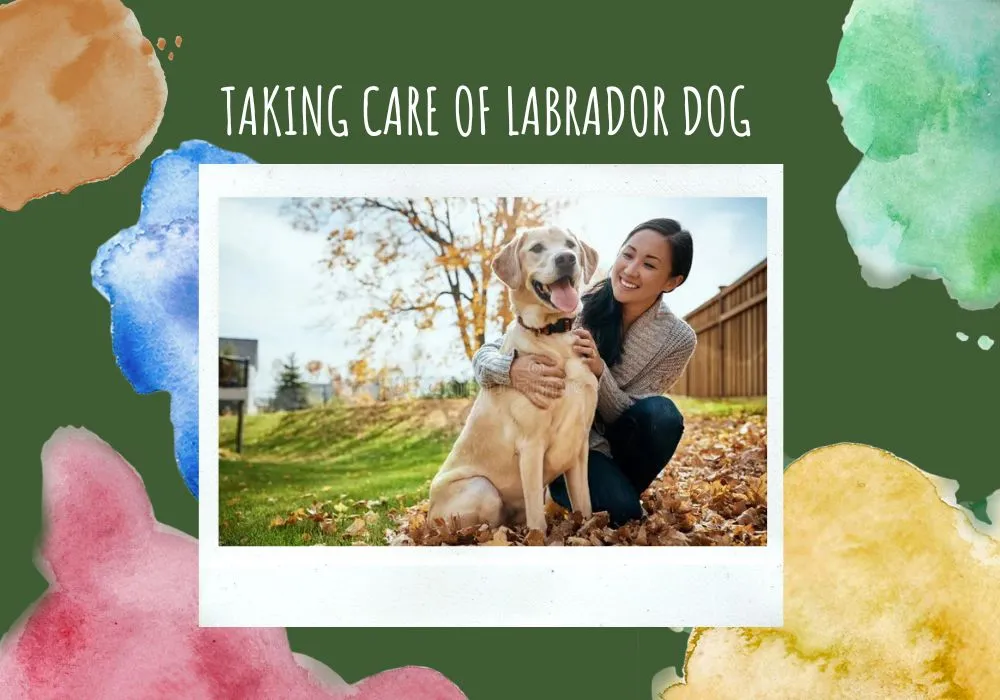Comprehensive Guide to Taking Care of Labrador Dog
Care of Labrador dog are one of the most popular dog breeds in the world, known for their friendly demeanor, intelligence, and versatility. Whether you’re a first-time Labrador owner or looking to enhance your dog care skills, this guide will provide you with essential information to ensure your Labrador lives a healthy and happy life.
1. Nutrition
Balanced Diet: Labradors are active and energetic dogs that require a balanced diet to maintain their health and vitality. Choose high-quality commercial dog food or consult your vet for a homemade diet plan. Ensure the diet includes:
- Protein: Essential for muscle development and repair.
- Carbohydrates: Provide energy.
- Fats: Necessary for a healthy coat and skin.
- Vitamins and Minerals: Support overall health and bodily functions.
Feeding Schedule:
- Puppies (2-6 months): Feed 3-4 times a day.
- Young Adults (6-12 months): Feed twice a day.
- Adults (1 year and older): Feed once or twice a day depending on activity level.
2. Exercise
Daily Physical Activity: Labradors are highly active dogs and need regular exercise to stay healthy and happy. Aim for at least 60 minutes of exercise each day, including:
- Walking or Running: Regular walks or runs to burn off excess energy.
- Playtime: Fetch, tug-of-war, and agility training.
- Swimming: Labradors love water and swimming is excellent exercise for them.
Mental Stimulation: Along with physical activity, mental stimulation is crucial. Engage your Labrador in:
- Training Sessions: Teach new commands and tricks.
- Puzzle Toys: Use interactive toys that challenge their minds.
- Socialization: Regular interaction with other dogs and people.
3. Grooming
Coat Care: Labradors have a double coat that sheds throughout the year. Regular grooming is essential to keep their coat healthy and minimize shedding.
- Brushing: Brush your Labrador’s coat at least twice a week to remove loose hair and prevent matting.
- Bathing: Bathe your dog every 2-3 months or as needed. Use a mild dog shampoo to avoid skin irritation.
Ear Care: Labradors are prone to ear infections due to their floppy ears. Clean their ears weekly with a vet-recommended ear cleaner.
Nail Trimming: Trim your Labrador’s nails every 3-4 weeks to prevent overgrowth and discomfort. If you’re unsure how to trim nails, seek guidance from a vet or professional groomer.
4. Health and Veterinary Care
Regular Check-ups: Schedule regular vet visits for health check-ups and vaccinations. Early detection of health issues is key to maintaining your care of Labrador dog’s well-being.
Common Health Issues: Be aware of common health issues in Labradors and monitor for symptoms:
- Hip Dysplasia: A genetic condition affecting the hip joints.
- Elbow Dysplasia: Affects the elbow joints and causes lameness.
- Obesity: Labradors are prone to weight gain, which can lead to other health problems.
- Ear Infections: Regular ear cleaning can help prevent infections.
Parasite Control: Use vet-recommended flea, tick, and worm preventatives to protect your Labrador from parasites.
5. Training and Behavior
Basic Training: Start training your Labrador as early as possible. Focus on basic commands such as sit, stay, come, and heel. Consistency and positive reinforcement are key to successful training.
Socialization: Expose your Labrador to various environments, people, and other animals to develop a well-rounded temperament. Early socialization helps prevent behavioral issues and ensures your dog is comfortable in different situations.
Behavioral Issues: Labradors are generally well-behaved, but they can develop bad habits if not properly trained. Address issues like chewing, barking, and digging with consistent training and adequate exercise.
Conclusion
Taking care of a Labrador dog involves a commitment to their physical, mental, and emotional well-being. By providing a balanced diet, regular exercise, proper grooming, and consistent training, you can ensure your Labrador lives a healthy, happy, and fulfilling life. Remember to consult with your veterinarian for personalized advice and care tailored to your Labrador’s specific needs.
FAQs
How often should I feed my Labrador?
Puppies need 3-4 meals a day, while adults can be fed once or twice daily depending on their activity level.
How much exercise does a Labrador need?
Labradors require at least 60 minutes of exercise daily, including walks, playtime, and mental stimulation.
How do I groom my Labrador?
Brush your Labrador’s coat twice a week, bathe them every 2-3 months, clean their ears weekly, and trim their nails every 3-4 weeks.
What are common health issues in Labradors?
Common health issues include hip and elbow dysplasia, obesity, and ear infections. Regular vet check-ups and preventive care are essential.
How can I train my Labrador effectively?
Use positive reinforcement and consistency. Start with basic commands and socialize your Labrador early to ensure good behavior.







